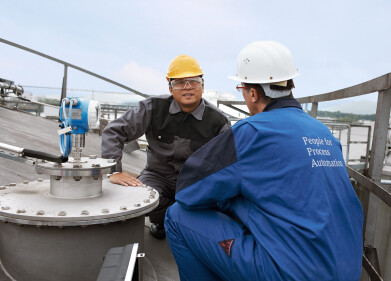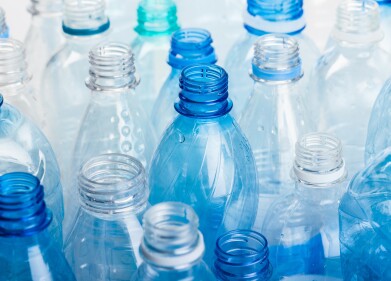Analytical Instrumentation
Why an Indonesian Oil Tycoon is Turning to Gas
Feb 13 2020
As the climate change crisis escalates and green energy continues to gain momentum, one of Indonesia's most prominent energy tycoons is turning away from oil and championing natural gas as a major product. Juchiro Tampi owns Sele Raya, one of the biggest privately held petroleum producers in Southeast Asia. For decades, the company has generated most of its revenue through oil, but with prices falling and environmental concerns on the rise, Tampi is spearheading plans to replace oil with natural gas, a clean source of energy that's gaining popularity in the Southeast Asian nation, and around the world.
In an initial public share sale on Indonesia’s stock exchange, Sele Raya is hoping to raise $100 million to explore and develop natural gas deposits discovered by the company. Tampi cites increasing domestic demand, low extraction costs and favourable prices as key motivators.
Indonesian government calls for increase in natural gas production
Another factor at play is decreasing production at existing Indonesian natural gas fields. While the country has exported the resource for decades, the government warns that the country may be forced to start importing natural gas by as early as 2025. In response, the Indonesian government is calling on domestic energy companies to refocus on natural gas resources. Authorities have also pledged to keep 50% of total domestic production in the country.
Firms such as Sele Raya are happy to comply, with prices offered to domestic buyers around 60% higher than if the natural gas was converted to LNG and exported to the North Asian market. Sele Raya isn't the only Indonesian company harnessing natural gas prospects, with energy giants PT Pertamina and PT Medco Energi Internasional also onboard.
Millennials driving clean energy movement
Tampi cites millennials, who are campaigning for environmental awareness and forcing businesses to take accountability for their environmental footprints, as one of the biggest drivers of natural gas demand. “Our population is increasing and millennials, the younger age group, are also growing,” he says. “When you do business you want to make a profit, but now we’re in the era of sustainable business,” he said. “So you want to have a social impact, do good while still making a profit. My vision is the electric car is here and it will become a mass-produced product.”
Soaring demand for natural gas is also fuelled by the Indonesian government's large-scale plan to connect the entire country to the grid and provide all homes and businesses with electricity by 2024. While coal will play a major role, gas-powered plants will also emerge as key power sources, creating a readymade market for domestic natural gas produced by companies such as Sele Raya.
Sele Raya isn't the only company transitioning towards a greener future, with the lubrication sector also adapting to the rise of electric vehicles. For a glimpse of some of the key outlooks and changes that have already started to materialise in the automotive lubrication and grease market, don't miss 'Recent advances electrify the lubrication industry'
Digital Edition
PIN 25.1 Feb/March
March 2024
In This Edition Safety - The technology behind the ION Science Tiger XT - Safety with ammonia and LOHCs as hydrogen carriers Analytical Instrumentation - Discussion on new tribology te...
View all digital editions
Events
Apr 22 2024 Hannover, Germany
Apr 22 2024 Marrakech, Morroco
Apr 22 2024 Muscat, Oman
Apr 22 2024 Rotterdam, Netherlands
Apr 23 2024 Singapore


















